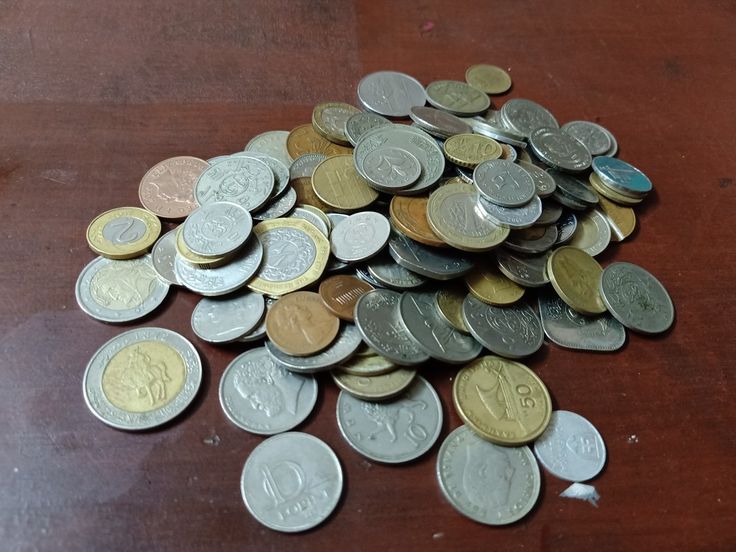Old coins Fraud
Mumbai – In a shocking case of online fraud, a 54-year-old woman from Mumbai’s Kurla area lost over ₹8 lakh while trying to sell rare currency, including a ₹100 note with the “786” serial number and old 25 paise coins, on an online marketplace. The woman fell prey to scammers who posed as collectors and officials, luring her into making multiple payments under the guise of registration charges, legal fees, and processing costs.
The incident highlights the growing number of cyber frauds targeting citizens seeking to make money from the sale of rare coins and notes, which are often falsely portrayed as fetching lakhs or even crores on certain online platforms.

How the Fraud Unfolded
According to the FIR filed with the cyber police, the victim had in her possession a ₹100 currency note bearing the number “786” — a number considered auspicious in Islamic culture — in addition to a few 25 paise coins. In May 2024, she came across a social media post claiming that such rare currency items were being purchased online for prices upwards of ₹1 crore.
Encouraged by the idea of making quick money, the woman contacted the “buyer” through a number mentioned in the post. The scammer posed as an agent working with a reputed currency collector association and convinced her that buyers from abroad were ready to purchase her items.
Soon, the woman was made to join a Telegram group called “Antique Currency Collectors India,” where she interacted with several others who posed as officials and international buyers. The fraudsters shared fake documents and IDs to win her trust.
Step-by-Step Extortion
In the name of registration fees, insurance charges, customs clearance, and currency verification certificates, the victim was gradually coaxed into transferring money in multiple installments.
The police report indicates she made over 40 transactions between May and July 2024, transferring amounts ranging from ₹5,000 to ₹50,000 per transaction, totaling approximately ₹8.16 lakh.
Every time she grew suspicious, the fraudsters would send her “payment receipts,” fake confirmation letters, and even a forged Reserve Bank of India (RBI) approval certificate to keep her engaged. One of the fraudsters even posed as a customs official, claiming that her deal was about to be finalized but required “last-minute documentation.”
Realization & Police Complaint
When the woman demanded the promised ₹1.5 crore payment for her rare note and coins, the fraudsters blocked her on Telegram and WhatsApp. Realizing she had been duped, she approached the Kurla cyber police and lodged a formal complaint.
A complaint for cheating, impersonation, and cyber fraud has been filed under the appropriate provisions of the Information Technology Act and the Indian Penal Code (IPC). The cyber police have begun tracking the phone numbers and bank accounts used by the accused.
Growing Trend of Currency Fraud
This is not an isolated case. Over the past year, multiple reports from various parts of the country, including Delhi, Gujarat, and Uttar Pradesh, have highlighted how scammers are exploiting public interest in rare notes and coins.
The modus operandi often involves fake websites and social media groups that claim buyers are willing to pay lakhs or crores for old currency. The RBI has issued several warnings in the past, clarifying that it does not authorize any individual or entity to trade in rare currency or collectibles.
In 2023, the central bank even issued a public notice stating:
“The Reserve Bank of India does not deal in such matters and has not authorized any institution or agent to collect money or sell/purchase coins/notes.”
What Makes ‘786’ Notes and Old Coins Attractive?
The number 786 holds religious significance, especially among the Muslim community, and is often associated with prosperity and blessings. Similarly, coins of 25 paise and older denominations are no longer in circulation, making them attractive to collectors — but only in niche circles.
Legitimate buyers and collectors of rare coins or currency items usually operate through registered numismatic associations, and deals happen only after physical verification and evaluation by experts.
Police Advisory: Don’t Fall for Online Currency Scams
The Mumbai Cyber Police have urged citizens to be cautious and follow these safety tips:
-
Avoid responding to social media ads that claim to offer crores for old notes or coins.
-
Verify the identity of the buyer through official documentation and trusted platforms.
-
Never pay money upfront in the name of registration or customs clearance.
-
Report suspicious websites or messages immediately to cybercrime.gov.in or your local police station.
Final Word
What began as an attempt to earn from rare collectibles ended in financial ruin for a Mumbai homemaker. The case serves as a cautionary tale against online scams exploiting cultural sentiments and financial aspirations.
As digital fraud continues to rise, experts urge citizens to exercise skepticism and verify all claims, especially those that sound “too good to be true.”
Mumbai Woman Duped of ₹8 Lakh While Trying to Sell Rare ₹100 Note and 25 Paise Coins Online
For moreMaharashtra News
